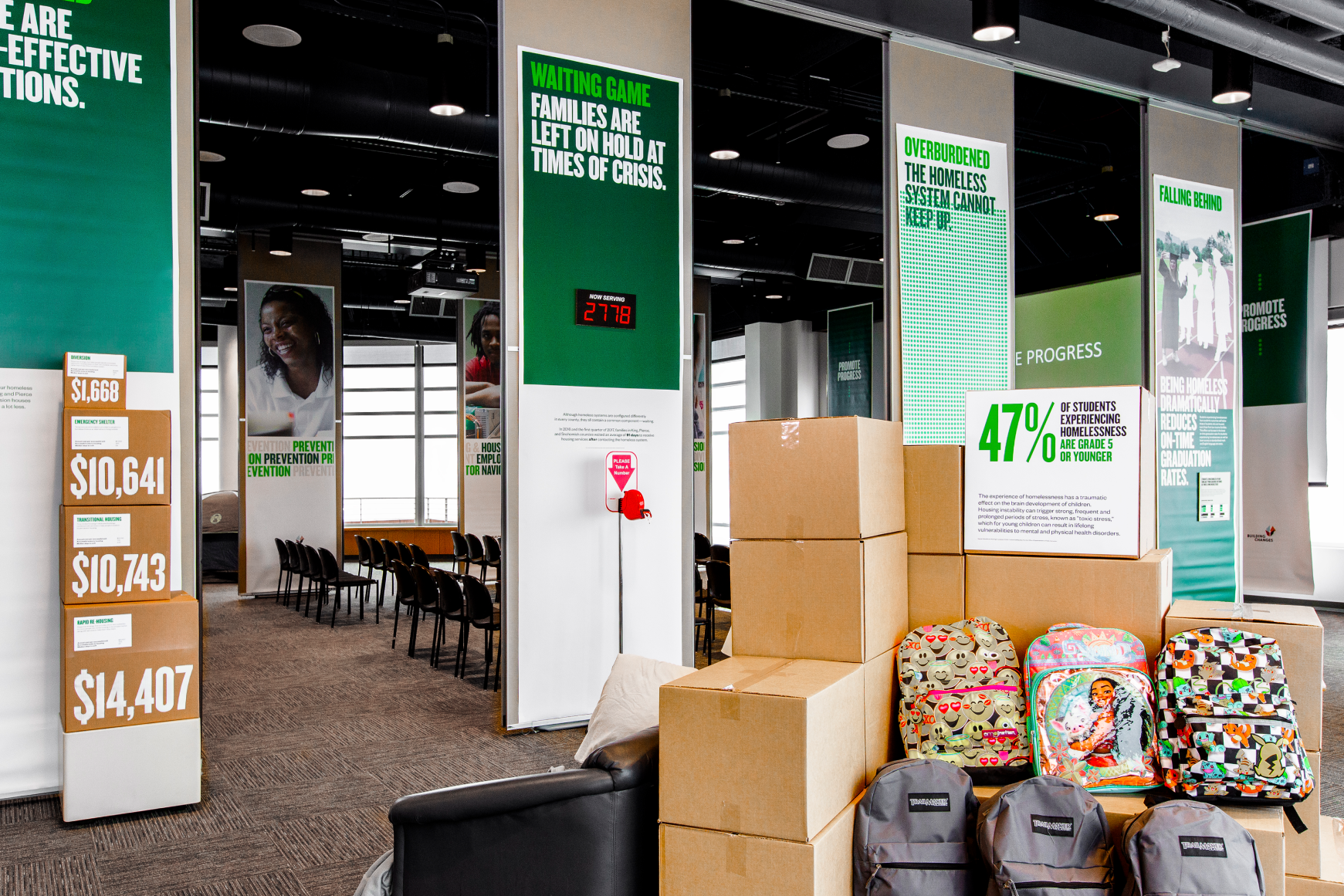Designing a pop-up exhibit to educate stakeholders on homelessness in Washington
Challenge
After a decade of testing various approaches to address family and youth homelessness across Washington state, nonprofit organization Building Changes was eager to share what they learned with a wider audience. Part of this effort would be a one-day convening for policymakers, philanthropists, and the media to highlight findings from their research and help advance regional solutions to homelessness.
With such a diverse audience, Building Changes knew how important it was for the data to tell an accessible story with clear takeaways that attendees could use to inform their own work. Our team was asked to design the full experience of the convening from the storytelling and data visualizations to the design and build of the physical exhibits.
Process
I worked with the Building Changes team to land the themes and learning objectives of the session and then develop the content and visuals. This involved combing through and synthesizing 10 years of their data and incorporating external data sources to help fill out the story. I partnered closely with our lead designer to develop unconventional data visualizations and design physical exhibits to reinforce the story.
The convening location, the Panoramic Room at the Pacific Tower in Seattle, provided its own inspiration. For its sweeping city views and high ceilings, we designed towering 12-foot panels featuring powerful data visualizations that played with scale and materials to keep the audience engaged.
Quotes from interviews with people experiencing homelessness and representative personal objects like moving boxes, suitcases, school desks, and backpacks accompanied visitors on their tour of the space. Seeing piles of familiar belongings out of place helped to personalize the experience, taking it from an abstract data problem to a human one.
The final pop-up experience, “Promote Progress,” offered our audience context for the data, enabled them to develop a basic understanding of the dynamics of the homeless system, and exposed them to proven, effective homelessness response strategies.
Outcome
On the day of the event, over a hundred policymakers, philanthropists and members of the media from across the state browsed through exhibits on the state of family and student homelessness in Washington. Walking through a visually arresting space that highlighted local data and stories enhanced the audience’s understanding of the issues facing the homeless system in Washington. Staff docents were on hand to answer questions and provide additional context for stories depicted in the exhibits. Building Changes then hosted a keynote panel discussion to share data and reflections from providers about promising examples of their work.
The event enabled Building Changes to expose a new audience to their innovative and data-driven approaches to solving homelessness.
Project Team: Aaron Lewis, Michael Diederich














Helping clients to clarify their thinking and to craft persuasive presentations using storytelling and visual communication